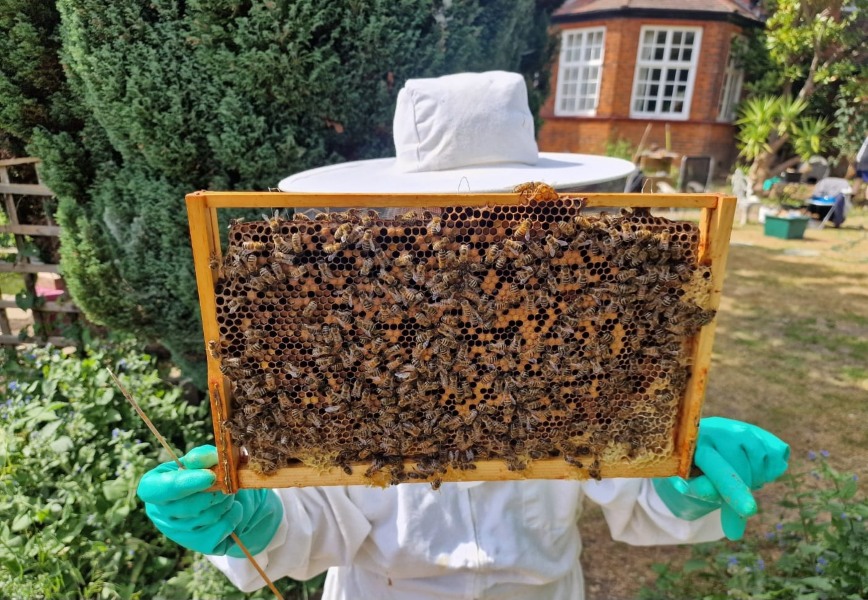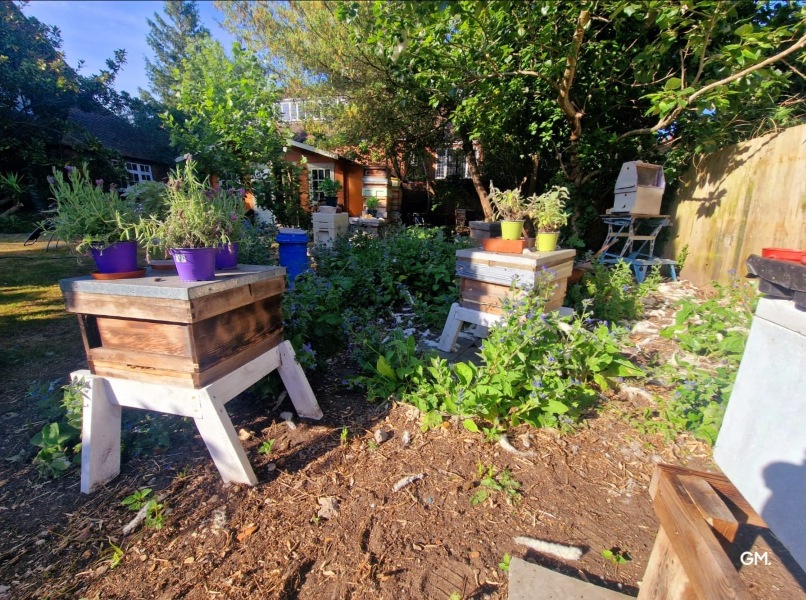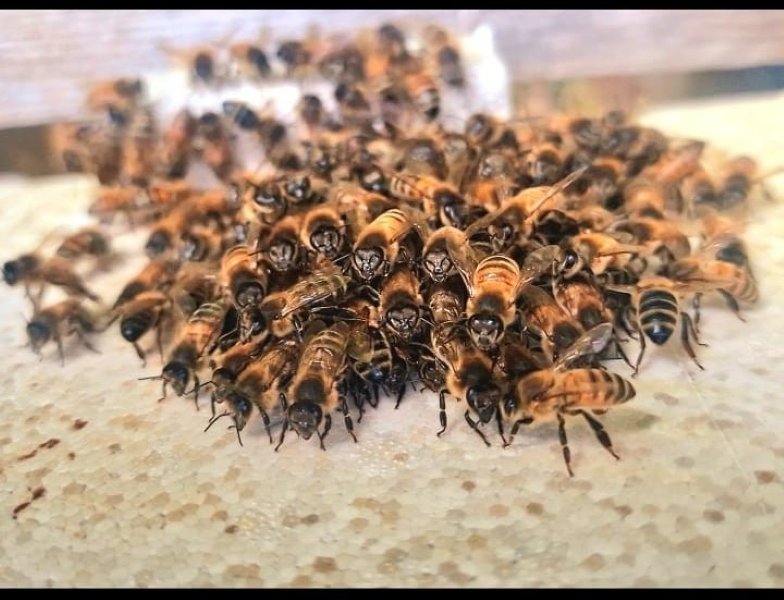Kairos Community Bees: summer report
It’s been quite the start to the year, writes Kairos beekeeper Grace Madden.
We’re now four months out of winter and came through with eight colonies, three of which were what I like to call ‘monsters’ (double broods, for those in the know).
But just one month into spring, we lost all but one and a tiny nuc (a baby colony in a little box) from poisoning and absconsion. There were several cold snaps that threw off the natural progression of colony development. It happens, though it never gets easier to watch.
Then, and just as suddenly, nature threw us a lifeline when swarm season turned out to be kind. We’re now up to thirteen colonies! These beautiful new colonies are still finding their feet. They’re fragile now and just starting to build up. It takes a frame of eggs about three weeks to mature, whereas honey-making season only lasts for eight weeks, if we’re lucky. They’ve really only got about six weeks now to build up enough stores to see them through the next winter.
In turn, this means there won’t be much, if any, honey for us to harvest or enjoy this year. That’s fine with me. With the help of our volunteers, we will endeavour to help these colonies thrive so they survive to next spring. As long as they make it through the winter, I’ll be happy.
*
This year has been a sharp reminder of how fragile our bees really are and how much they rely on what happens outside the hive. Not enough forage and the risks of poison are part of the challenge.
Part of our job as beekeepers is gently reminding people nearby to think about what they’re planting, spraying or leaving bare. One patch of flowers won’t feed the whole population of pollinators. Plants like green alkanet, for example, might look untidy but they keep the bees going when nothing else does. I urge you not to kill, pull or weed it.
Another thing we sometimes forget is water. Bees need a constant supply, always in the same spot so they know where to come back to. For bees, water isn’t just a drink but how they make honey and keep the hive cool on hot days. Yes, bees get thirsty! In fact, they don’t really rest and use up every drop of moisture they can find. Plus, bees don’t urinate, so every drop counts.
Where you can, putting out a shallow bowl of water with a few pebbles or a cork or two floating on top is all it takes. It makes a real difference.



